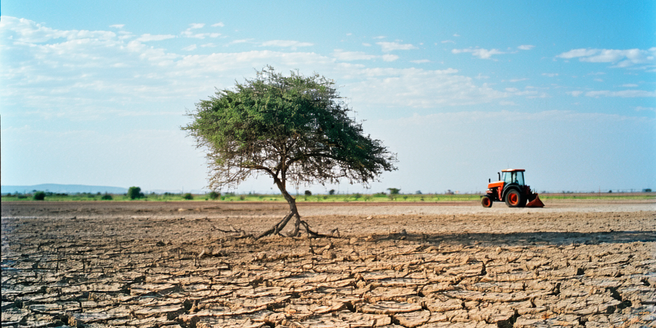
The Causes of Desertification in Africa
Desertification in Africa is primarily driven by a combination of natural and anthropogenic factors. Intensive farming, unsustainable water management, and deforestation contribute to soil degradation. Additionally, overgrazing by livestock reduces vegetation cover, making the soil more vulnerable to erosion. Climate change exacerbates these issues by increasing the frequency and intensity of droughts, leading to a vicious cycle of land degradation. Population pressure further intensifies land use, diminishing the natural resilience of the ecosystem. Government policies and inadequate land management practices often fail to address these challenges effectively, accelerating the degradation process. Comprehensive solutions must consider integrated land management, encouraging sustainable agricultural practices and community engagement to combat these driving forces.
Impact of Climate Change on Arid Regions
Climate change significantly impacts arid regions in Africa, heightening the vulnerability of ecosystems already under stress. Rising temperatures and erratic rainfall patterns lead to prolonged droughts, reducing water availability and stressing vegetation. These conditions decrease agricultural productivity and affect water resources vital for both human consumption and irrigation. The increased evaporation rates worsen soil salinity, further degrading land quality. Not only do these changes threaten food security, but they also strain the livelihoods of communities dependent on subsistence farming. To mitigate these impacts, strategies focusing on water conservation, climate-smart agriculture, and improved infrastructure for water storage and distribution are essential, alongside efforts to reduce greenhouse gas emissions on a global scale.
Socioeconomic Consequences of Land Degradation
The socioeconomic consequences of land degradation in African arid regions are profound, impacting millions who depend on these lands for their livelihood. As productive land diminishes, food scarcity becomes more prevalent, leading to higher prices and increased hunger. This food insecurity forces communities to migrate, often resulting in urban overcrowding and strain on city resources. Decreased agricultural output also limits economic opportunities, influencing poverty levels and reducing resilience to climate shocks. Health issues surge as populations face malnutrition and limited access to clean water. Addressing land degradation requires policies that promote sustainable agricultural practices, investment in rural development, and community-based natural resource management, which are crucial steps for enhancing socioeconomic stability and resilience.
Biodiversity Loss in Affected Ecosystems
Biodiversity loss is a significant consequence of desertification in African ecosystems. As habitats are degraded and vegetation cover is lost, many species face extinction threats due to diminished living space and food sources. The reduction in biodiversity leads to the collapse of ecosystem services, such as water purification, pollination, and carbon sequestration, which are vital for maintaining ecological balance. This loss alters the composition of species communities, often resulting in the dominance of invasive species that displace native flora and fauna. Protecting biodiversity requires urgent actions, including the restoration of natural habitats, the creation of wildlife corridors, and the implementation of conservation programs that involve local community participation to ensure sustainable biodiversity management.
Restoration Efforts and Innovations
Restoration efforts play a crucial role in combating desertification, focusing on reviving soil health and re-establishing vegetation. Techniques such as agroforestry, which integrates trees with crops, help in restoring nutrients to depleted soils while providing additional income sources for farmers. Innovations in water management, including the use of rainwater harvesting and efficient irrigation systems, are vital to sustaining agriculture in arid regions. Success in restoration projects often involves community engagement, empowering locals to take an active role in land management. Additionally, employing technology, like satellite monitoring, aids in tracking progress and identifying areas in need of intervention. Sharing knowledge and successful approaches through international collaboration boosts the effectiveness of these restoration initiatives.
Policy Frameworks for Sustainable Solutions
Implementing effective policy frameworks is essential to address the complexities of desertification. Policies must be multifaceted, integrating environmental, economic, and social aspects to achieve sustainable solutions. Incentives for sustainable land use practices encourage farmers to adopt eco-friendly techniques. Legislation supporting equitable land rights empowers communities and enhances stewardship. Governments need to invest in research and development for innovations that improve land management. International cooperation is critical in aligning policies across borders to tackle transboundary challenges associated with desertification. Monitoring and evaluation systems are necessary to ensure that policies have the desired impact, requiring input and cooperation from various stakeholders, including local communities, to adapt and refine strategies effectively.
